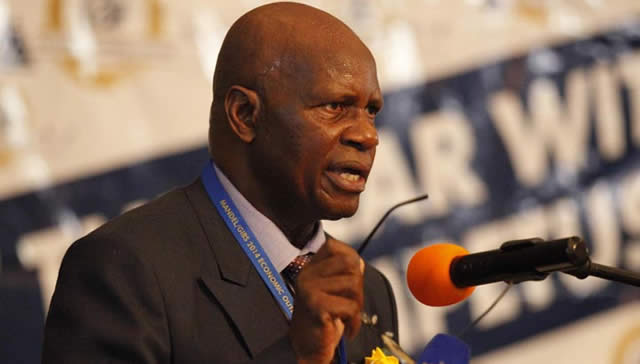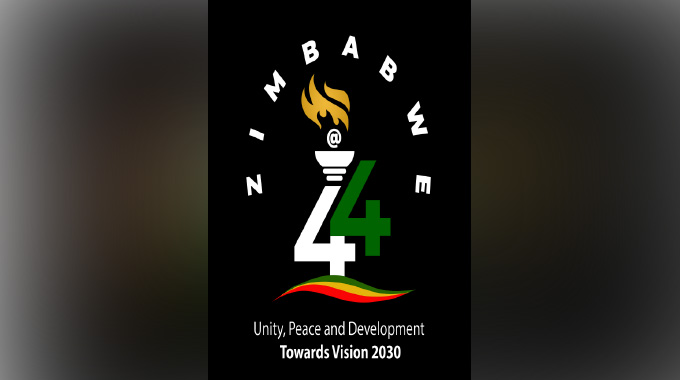Zim looking East . . . and everywhere

Bernard Bwoni
“We shouldn’t be running away from China, let’s stick together. Whether the headlines, regardless of the challenges we should work together to make the UK China’s best partner in the West”. British Chancellor George Osbourne said this recently when he was speaking at the Shanghai Stock Exchange in China. He described China as “a phenomenal part of the world economy” and he was absolutely right.
Most countries throughout the world including the EU and US adopted a Look East policy since the economic boom in China started. The British, EU and USA have dispatched several business delegations to China. The thing about the West is that they understand money and hence they have it. They respect money more than those in the developing world who do not have that money.
The West will do what it takes to ensure that they get the business and they bring in the money to maintain their consistent high standards of life. They know how to separate business from ideology and politics. Osbourne said “we raise human rights, but we do it in the context of also talking about issues like economic development.
“Of course we’re two completely different political systems and we raise human rights issues, but I don’t think that’s inconsistent with also wanting to do more business with one-fifth of the world’s population”.
They understand business and they follow it where it is and human rights are just words when it comes to business. They follow it in the mud, the desert, the Muslim backyards or any muddle you can imagine. Money is just money even if it comes from the mud, you always clean it up and life goes on.
On the other hand there are some from Zimbabwe and other African countries who are busy at each other’s throats over trivia while neglecting the things that bring in money into their economies. While George Osbourne is busy molly cuddling the Chinese and looking east some in Zimbabwe are busy dismissing the ruling party’s look east policy as a gimmick. This is what separates those who get ahead in this world and those who lag behind. With China pledging to cancel debts to developing countries how can a look east policy be a bad policy, surely?
It is interesting that some are urging the government to look west when the west is looking east. That is a redundant argument and why Africa always ends up having to play catch up. A more convincing argument would be a look everywhere policy because there is no point in looking to a west that is looking east.
Zimbabwe can look east, west, north and south. It does not matter as long as the benefit is going to be mutual. There is nothing wrong with being economically aggressive to get ahead in this world. Zimbabwe’s economy is on the verge of a major economic take-off and the only tone that should be coming from Harare is “business coated” and economic savvy.
As long as no aggressor is physically manhandling the country then business tone should remain business tone. The Conservatives in Britain are Zimbabwe’s best hope of mutually respectful engagement. The tone from Tories has remained largely positive and the reciprocity of delegations suggests a major shift towards full engagement. There has been a number of business delegations from Zimbabwe which have been to London and other EU capitals as part of a move to improve reengagement strides.
The Minister of Industry and Commerce Mike Bimha recently led a delegation to London to woo potential investors. Zimbabwe has a cause (historical inequalities) and that has now been addressed. That can now be put in the background and the prevailing tone has to be business and business alone.
The biggest threat to Zimbabwe’s economic revival now is more internal than external. The continued bickering, backstabbing and confusion is bad for business. A tone that does not offend, frustrate or confuse is crucial.
It is about striking the right tone; it is about being diplomatic and understanding the country’s audience can mean the difference between off-putting potential business and building important business relationships. It can mean the difference between getting the desired result and being ignored in place of those who speak the right language of business with the right tone.
Politics and economics are interlinked and they both have an equal place in any country. However, it is always important to separate the two when communicating for business. Osbourne discussed business with the Chinese and at no point did he focus on the alleged human rights abuses. The talk of human rights abuses does not bring money to Britain’s economy.
There is a time and place to talk about human rights for it is morally right to do so. It is quite reassuring to note that Finance Minister Patrick Chinamasa has been talking the language of finance as per his ministry’s remit. The key to constructing business communication is to consider the audience, the purpose and type of information to be disseminated. There is a certain tone that can be uninviting to others and for sure some will sit on the fence instead of engaging fully.
The tone that the country presents can easily become a subject or target of international frustration if mismanaged or the bridge that business crosses over if well managed. The tone should aim at establishing and maintaining positive relationships with all business partners from the east to the west, the north to the south.
In some countries business tone is in fact incorporated in national culture. Zimbabwe is a hospitable country and all those who come into the country should get that sense. We may disagree on the politics, but we live off the business and as such business tone should be recognised as one of the country’s official languages. Money should transcend political divisions.
The Conservatives in Britain through their Chancellor Osbourne are looking beyond the ideological and political differences with China and putting business ahead of that. Zimbabwe does have ideological and political differences with the West and there is nothing wrong with that for that is what makes each country unique.
However, these differences should not be allowed to be the obstacles to Zimbabwe’s quest to attract new business into the country. People are shaped by an ideology, but they do not “eat ideology” and Osbourne is clearly aware of that hence his call to “make UK China’s best partner in the west”.
The tone of business should be cascaded nationally from top to bottom. There is value and relevance in presenting the right business tone as opposed to what is perceived as an aggressive closed-door style. The right tone should be the natural way of communication throughout the country. If George Osbourne can grovel for Chinese business, Zimbabwe and Africa as a whole have to create the most hospitable conditions for those who are likely to bring money or investment into the country.
All investors, domestic and foreign need to be strongly reassured that Zimbabwe is indeed open for business. Zimbabwe has the right policies in place, but those need to be communicated in a manner that reassures those who want to bring money into the country.
Policies can easily be misunderstood or misinterpreted and thus the need for clarity beyond any reasonable doubt that Zimbabwe is ready to embrace all business irrespective of country of origin. The ruling party knows that Zimbabwe is open for business and the ruling party is clearly sending the signals that the country is prime for investment.
However, it is imperative to look at it from outside, the perception and how the country is viewed from the outside and then allay some of the misconceptions in a manner that reassures. The right tone and information would go a long way in doing that.
Zimbabwe like most African countries is rich in mineral and other natural resources.
However, the country’s capital markets are quite restricted and currently have limited capacity to finance the development, the beneficiation and value addition of the country’s vast resource potential. Foreign investment is essential particularly from the Chinese, the Russians, the EU, Africa, Asia, and the US.
There are potential national threats tacit in some foreign investments and rightly so the need for Zimbabwe to be cautious and vigilant in protecting its national interests. Any investor though, would understand the need for Zimbabwe to protect her national interests but the tone and how this is communicated can be the difference between wooing in and warding off potential investment.
The challenges to attracting FDI are huge in particular because many developing countries, emerging economies and even the developed countries are all actively seeking to attract it. This is intensifying global competition among governments and this is where it becomes crucial how the country is perceived. Africa as a whole has to buckle up to be able to compete.
The propensity to invest in Zimbabwe has been severely affected by internal economic challenges and perceived political risks. This is a distortion that Zimbabwe has to work at correcting. Our tone is important when trying to correct this distortion. Sometimes there is no need to shout, but rather to just provide the right information consistently and at the right time.
The effectiveness of the government’s response is key to creating favourable conditions to attract foreign direct investment. The priority should be on improving the environment for investment, the functioning of capital markets and consistencies in business tone and clarity in communicating the terms of legal guarantees for people’s investments.
It is one thing to direct them to the Indigenisation and Empowerment Act, and it is another thing actually sitting down and allaying their fears. It is the right information presented with the right tone that will allay those fears.
This opinion was originally published on bernardbwoni.blogspot.com










Comments